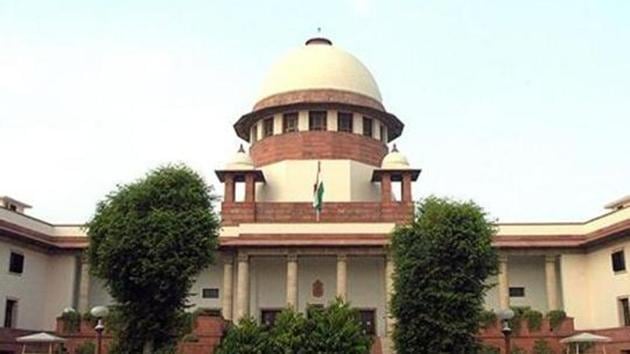Why Supreme Court collegium elevated Justice Sanjiv Khanna
The collegium’s controversial decision to elevate justice Sanjiv Khanna from the Delhi high court to the Supreme Court may have been driven by a desire to ensure continuity in the top court’s leadership after November 2024, a person familiar with the matter said on condition of anonymity.
The collegium’s controversial decision to elevate justice Sanjiv Khanna from the Delhi high court to the Supreme Court may have been driven by a desire to ensure continuity in the top court’s leadership after November 2024, a person familiar with the matter said on condition of anonymity.

While the controversy seems to have died down, the reason why the collegium decided against two other names almost finalised in a December meeting and went with two new names that were discussed in January, has never been clear.
In justice Khanna’s case, one reason may have been his term of service in the top court , people familiar with the matter said. Going by seniority, justice Khanna, 58, is in line to become chief justice of India (CJI) in November 2024 for a term of seven months.
“Besides suitability, one of the things considered by the collegium while elevating justice Khanna was his tenure in the top court and the fact that he would go on to become the future chief justice, which will ensure a clear line of succession in the Supreme Court, “ said the person cited in the first instance.
He added that before justice Khanna was recommended for elevation, the collegium was confronted with a peculiar problem — not having a judge who would have enough experience in the Supreme Court before going on to become chief justice.
“The collegium wanted a judge who would have close to five years in the Supreme Court, and who would be in the court after justice YV Chandrachud retired as chief justice in 2024. Justice Khanna fulfilled these requirements.”
The age of retirement of Supreme Court judges is 65. As things stood last week, the likely line of succession for CJI — nominated by the predecessor but by convention in order of seniority — was clear for the next five chief justices. Justice SA Bobde is likely to take over from CJI Ranjan Gogoi in November 2019, followed by justice NV Ramana in April 2021, Justice UU Lalit in August 2022, and Justice Chandrachud from November 2022 to November 2024.
By the time justice Chandrachud retires in November 2024, all the 26 serving judges in Supreme Court until last week would have retired. Justice Khanna’s elevation now makes him in line to be CJI from November 11, 2024 to May 13, 2025.
Justice Dinesh Maheshwari, who was elevated on the same day as justice Khanna, also retires in May 2023.
If the chief justice of the Rajasthan high court, Pradeep Nandrajog, who was apparently dropped in favour of justice Khanna, leading to the controversy, was elevated to the Supreme Court, he would have also retired in 2023. Justice Rajendra Menon, who was also not elevated at this time, would have retired in 2022 if he was elevated to the top court.
The Supreme Court collegium has come under fire after it emerged that it reversed a December 12 decision to elevate justices Nandrajog and Menon. The collegium that made original decision comprised justices Gogoi, MB Lokur, AK Sikri, Bobde and Ramana. On January 10, a reconstituted collegium, with justice Arun Mishra replacing retired justice Lokur, instead picked justice Maheshwari and justice Khanna, in the process superseding several other judges on the all-India seniority list of high court judges.
As controversy raged over the decision, former Delhi high court judge Kailash Gambhir wrote a letter to President Ram Nath Kovind describing the reversal as a “black day”, and former chief justices of the Supreme Court — including justice RM Lodha, justice JS Khehar and justice KG Balakrishnan — called for greater transparency in the collegium’s decision-making process.
The row comes a year after the four senior-most Supreme Court judges after the Chief Justice of India (CJI) — including justice Gogoi — held an unprecedented press conference where they disagreed with then-CJI Dipak Misra’s style of functioning and suggested a “consultation-led process” among the top five judges.
Get Current Updates on India News, Ram Navami Live Updates , Lok Sabha Election 2024 live, Elections 2024, Election 2024 Date along with Latest News and Top Headlines from India and around the world.



